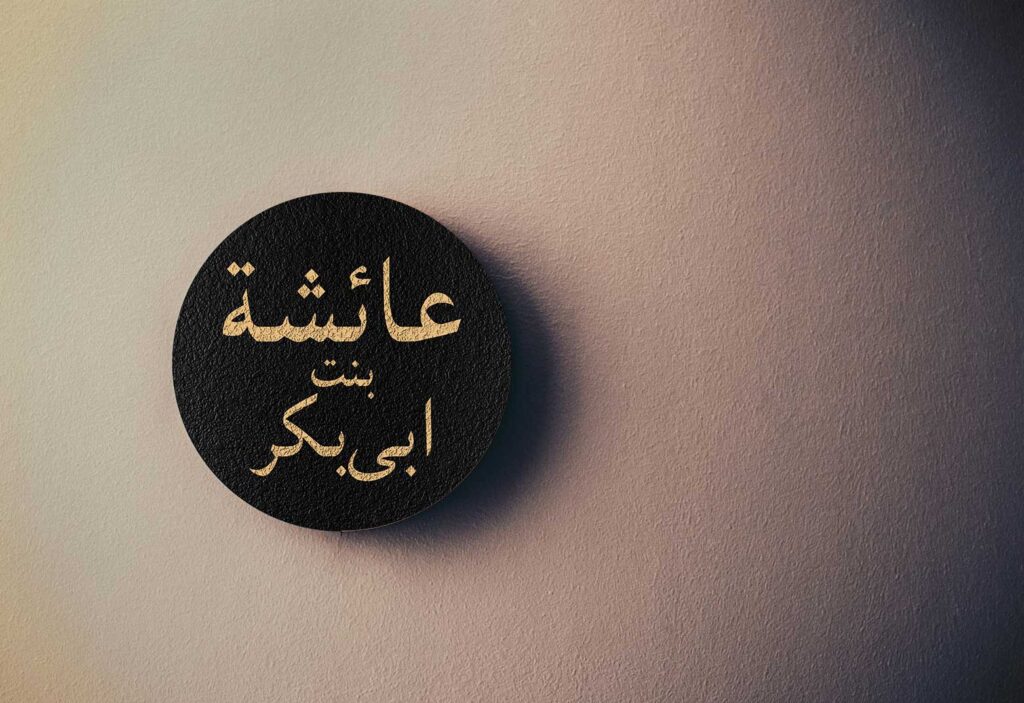AASIFA RAHMATH HAMEED
In a world where countless women are emerging as great leaders and influential figures in various fields, one prominent name stands out as a precursor to women’s rights and achievements in Islamic history: Hazrat Aishara.
While Islam is often labelled as a religion that does not provide women with equal rights compared to men, Hazrat Aishara’s life serves as a powerful counterargument to such baseless claims. She was a pioneer in upholding the rights of Muslim women, excelling in religious knowledge and wisdom, among many other fields, where she became a torchbearer and a guide for all Muslims. Her life offers valuable insights into the rights of women in Islam and serves as an example for those seeking a deeper understanding of women’s empowerment within the faith.
Hazrat Aishara not only excelled in religious knowledge and jurisprudence but also played a crucial role in shaping early Islamic scholarship, influencing generations of Muslims. Her contributions to education, justice, and leadership make her a timeless symbol of wisdom and strength, challenging stereotypes and proving that Muslim women have always had a voice in shaping society.
Being the wife of the Holy Prophetsa, Hazrat Aishara stands as a beacon of spiritual guidance for Muslims worldwide, and, in particular, a strong advocate for the rights of Muslim women.
However, to outsiders, her relationship with Prophet Muhammadsa has often been misunderstood and misrepresented. Despite these misconceptions, Hazrat Aishara holds a glorious position in Islamic history. She played multiple roles as a wife, scholar, thinker, and guide, contributing significantly to the spread and preservation of Islamic teachings.
Hazrat Aishara was the daughter of Hazrat Abu Bakr Siddiqra—the closest companion of the Holy Prophetsa and the First Caliph of Islam. Her marriage with Prophet Muhammadsa took place based on a vision he had. Her age at the time of her marriage to the Prophetsa has been a topic of controversy among some orientalist thinkers. However, historical evidence categorically proves all such allegations to be baseless and clearly shows that she was not a child when she entered the Prophet’s home to begin her married life.
Despite her youth, it was evident that Almighty Allah had blessed her spiritually, physically, and intellectually. Her wisdom and intellect were far beyond her years. She possessed a deep understanding of the spiritual and ethical dimensions of Islam and emphasised the importance of education, particularly for Muslim women.
Attesting to her vast knowledge, Hazrat Aishara’s nephew Urwa ibn al-Zubayr testifies that he had never seen a greater scholar in the knowledge of the Holy Quran, fundamentals of religion, Islamic jurisprudence, poetry, medicine, Arabian history and genealogy than Hazrat Aishara.[1]
Hazrat Aishara learned the teachings and practices of Islam firsthand from the Holy Prophetsa. More than two thousand ahadith (sayings of the Holy Prophetsa) have been attributed to her narrations.[2] Many scholars of Islamic history believe that one-fourth of Islamic jurisprudence, known as fiqh, is based on her accounts. Given the vastness of Islamic jurisprudence, this is a remarkable achievement. She shared her immense knowledge with the Muslim world and guided the companions of the Prophetsa whenever they sought her counsel.
Hazrat Aishara’s expertise was not limited to scholarly and religious matters. Instead, she was a distinguished scholar and a leader with deep understanding in various fields. Her education included awareness of social responsibilities during times of conflict. On one occasion, the Holy Prophet Muhammadsa allowed her to stand behind him at the mosque to observe a demonstration involving military preparedness.[3] This was part of broader efforts to ensure that all members of society, including women, were informed and resilient in times of crisis.
Throughout her life, Hazrat Aishara remained devoted to humanitarian service, particularly during times of hardship. During the defensive battles such as Uhud and Khandaq, she was known for her tireless efforts in delivering water to the thirsty and tending to the injured—acts of compassion that exemplified her spirit of service and support for the wellbeing of the community.
Her wisdom in maintaining relationships and generosity is highlighted in a story recounted by Hisham ibn Urwa. Despite having no personal income, Hazrat Aishara would distribute the gifts she received from the companions of the Holy Prophetsa in the way of Allah. On one occasion, after receiving a sum of one hundred thousand Dirhams, she distributed all of them by the evening and kept nothing for herself. When a friend remarked that she should have saved some for her own needs, Hazrat Aishara responded that she had not considered doing so.[4]
Regarding her wisdom and religious knowledge, the Fifth Khalifa of the Ahmadiyya Muslim Community states:
“In front of all Ahmadi women is the example of Hazrat Aishara, who, in terms of religious knowledge, attained a rank far beyond the men of her time or, indeed, any other era. Accordingly, women have the potential to scale the greatest intellectual heights, and so you must never underestimate yourselves. Rather, seek to fulfil your rich potential, as it will provide you with the capability to raise your children in a way that they grow to be beneficial to society. It will also enable you to defend your faith and beliefs.”[5]
Hazrat Aishara remains an enduring symbol of knowledge, resilience, and justice. Her unwavering commitment to standing up for truth, advocating for the oppressed, and challenging societal norms proves that true strength lies in courage and conviction. In an era where women’s voices were often silenced, she spoke with wisdom and authority, shaping the intellectual and spiritual landscape of Islam.
Her legacy continues to inspire not just Muslim women but all individuals who seek to bring about meaningful change in society. Through her scholarship, leadership, and fearless advocacy for justice, Hazrat Aishara exemplifies the profound impact one person can have when they stand firm in their beliefs. Her life serves as a guiding light, reminding us that knowledge, faith, and a commitment to justice are the most powerful tools in shaping a better world.
Aasifa Rahmath Hameed holds an MPhil in Literature and Cultural Studies. She serves as a sub-editor at Light of Islam.
END NOTES
[1] Tazkirat al-Huffaz, Shamsuddin az-Zahabi, Dairat al-Maarif al-Uthmania, Hyderabad (1955), p. 24
[2] Siyar A’lam an-Nubala, Shamsuddin az-Zahabi, Muassasat al-Risalah, Beirut (1996), v. 2 p. 139
[3] Sahih al-Bukhari, Kitab al-Eidain (The Book of Two Eid Prayers)
[4] Al Bidaya wal-Nihaya, Ibn Kathir, Dar Hajr, Giza (1998), v. 11, p. 443
[5] 100 Years of Lajna Imaillah—Shaping the New Century, Concluding address at the Lajna Imaillah UK National Ijtema 2023, dated 24 September 2023, Review of Religions, 4 October 2023













0 Comments